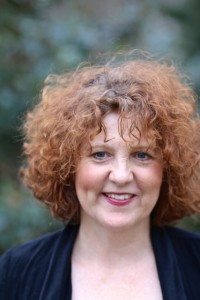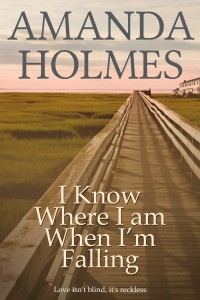Reading Wuthering Heights With Juvenile Offenders
 The idea that literature changes people’s lives is the premise of a program I facilitate through Fairfax County Public Library. It’s called Changing Lives Through Literature (CLTL) and it’s run in partnership with Fairfax County Juvenile and Domestic Relations District Court and Fairfax Library Foundation. I work with first time offenders and girls in a residence facility. We meet for ten weeks. Each class is an hour and fifteen minutes, during which we talk and write about a selected book. At the end of the course there is a completion ceremony, sometimes at the courthouse.
The idea that literature changes people’s lives is the premise of a program I facilitate through Fairfax County Public Library. It’s called Changing Lives Through Literature (CLTL) and it’s run in partnership with Fairfax County Juvenile and Domestic Relations District Court and Fairfax Library Foundation. I work with first time offenders and girls in a residence facility. We meet for ten weeks. Each class is an hour and fifteen minutes, during which we talk and write about a selected book. At the end of the course there is a completion ceremony, sometimes at the courthouse.
CLTL favors young adult novels with female protagonists. We’ve read such titles as Jacqueline Woodson’s Brown Girl Dreaming and Liz Murray’s Breaking Night. Last semester, I tried something out of their comfort zone – Emily Bronte’s Wuthering Heights.
Reading Bronte would be a risk. English is a second language for some of the girls and the language and vocabulary is challenging. But thousands of girls their age have read and responded to Wuthering Heights and I wanted to prove it could also speak to them. One girl, who had participated in the group before, told me she wanted a selection with more sex and violence. Bronte would qualify, I thought, but also might take her further.
This particular group included seven girls. I passed out the books on the first day of class, and watched their faces fall. What’s with the cover painting, they asked. They didn’t like the thickness of the novel, or the small writing, and weird language.
I described the isolation of the Bronte sisters, in the tiny village of Haworth in a parsonage, where they made up stories and drew pictures on their bedroom walls. I told them that I had been to the Haworth Parsonage and seen their drawings! The girls began to fidget.
 Then, I discouraged them further. “You’ll struggle with the opening chapters,” I said. “They are written from Lockwood’s point of view, and he’s boring. If you find these chapters difficult and boring, that’s because they ARE difficult and boring. Bear with it,” I told them. “I wouldn’t have picked this book if I didn’t think you’d like it.”
Then, I discouraged them further. “You’ll struggle with the opening chapters,” I said. “They are written from Lockwood’s point of view, and he’s boring. If you find these chapters difficult and boring, that’s because they ARE difficult and boring. Bear with it,” I told them. “I wouldn’t have picked this book if I didn’t think you’d like it.”
But I drove home uneasily. What if they hated the novel? What if reading it made them dislike books more than some of them already did? What if the experience alienated them?
As predicted, the girls found Lockwood boring. So we discussed what made him boring. Why was he such a cold fish? What was Emily Bronte thinking to use such a narrator for the opening of her passionate story?
Another problem was the character Joseph, who speaks in dialect. But Catherine’s ghost, who appears at Lockwood’s window, intrigued the girls. I played them a recording of Kate Bush singing “Wuthering Heights” and as they listened, something behind their eyes began to change. “Kate Bush was like a 70’s Lady Gaga,” I told them. “But better.” The spark of their interest was thus ignited – with a little help from Kate Bush.
As weeks went by, we discussed Heathcliff who was bullied and tormented by Hindley and mercilessly teased by Cathy. The girls thought Cathy had serious mental problems. They also found her irritating. But they were now amused by Joseph and had grown accustomed to his dialect.
Things picked up when the narrator shifted to Nelly Dean. They liked Nelly. But was she biased? Did she have a crush on Edgar Linton? The girls didn’t think so. But they all felt sorry for Hareton.
Was there an incestuous quality to the novel, I asked? Was it possible that Heathcliff was Earnshaw’s illegitimate son? Or that young Cathy was actually Catherine and Heathcliff’s daughter? No, they said. Because young Cathy has blonde hair. She looked too much like Edgar.
By the time we got into Book Two, everyone was hooked. They loved the many parallels: Thrushcross Grange and Wuthering Heights; the two Cathys; the several romances; the fathers and sons; the fathers and daughters; the way Bronte switches elements and unfolds them in different ways.
One morning, they wrote about a character they identified with. One of the girls picked Hareton, because he was quiet and didn’t show his feelings much. He’d lost his mother at a very young age. She identified with this because she too had lost family members and hadn’t known how to grieve them. This had contributed to her later problems.
Another girl identified with Heathcliff’s anger. She longed for him to show a good side of his nature – to come through in the end. He had been wronged and hadn’t been given a chance. It was sad that revenge had become his driving motivation.
We discussed Linton Heathcliff. Most decided he was weak, selfish and manipulative. But one girl liked him. “He can’t help how he is,” she cried. “He’s SICK!”
At the completion ceremony, the library awarded certificates to the girls and the girls gave speeches. Some of their family members were present and the girls were proud. Wuthering Heights had found its way into their hearts. They had risen to the challenge of a difficult text and it felt fantastic. As to their analysis, I’d confidently put them head to head with any high school or undergraduate class. “I liked this book better than the one we read last time,” said one girl. “Because I identified more with the characters.”
Reading can be a solitary activity which nourishes our inner lives. But in programs like CLTL we discover that we aren’t as alone or as different from each other as we think. That is empathy, and it transforms us. Last but not least, recidivism rate in CLTL is 2/3 of what it is in other programs – such as community service, etc. Books can change lives.
—
Amanda Holmes is the author of I KNOW WHERE I AM WHEN I’M FALLING, a novel. Her stories have appeared in such publications as Ploughshares, The Christian Science Monitor, Rattapallax, Main Street Rag. She blogs at www.irrelevanceofhope.blogspot.com Her website is www.byamandaholmes.com twitter @byamandaholmes
Category: Contemporary Women Writers, On Writing
Comments (4)
Trackback URL | Comments RSS Feed
Sites That Link to this Post
- Young People And Old Literature | The Dream Book Blog | August 28, 2016

























Are there programs for young men in the Chapel Hill area?
I’m thinking of my poet son in N.C. Who is also an author?
Thanks,
Maggie
Maggie, I don’t know about North Carolina. I do know that the program is an alternative sentencing in a number of places around the country – and also in the UK. Perhaps if you contact your county library or juvenile justice system you may find answers. Good luck!
Thank you for this sensitive piece of writing Amanda.
The work you are doing with Young Offenders and Literature could be life-changing.